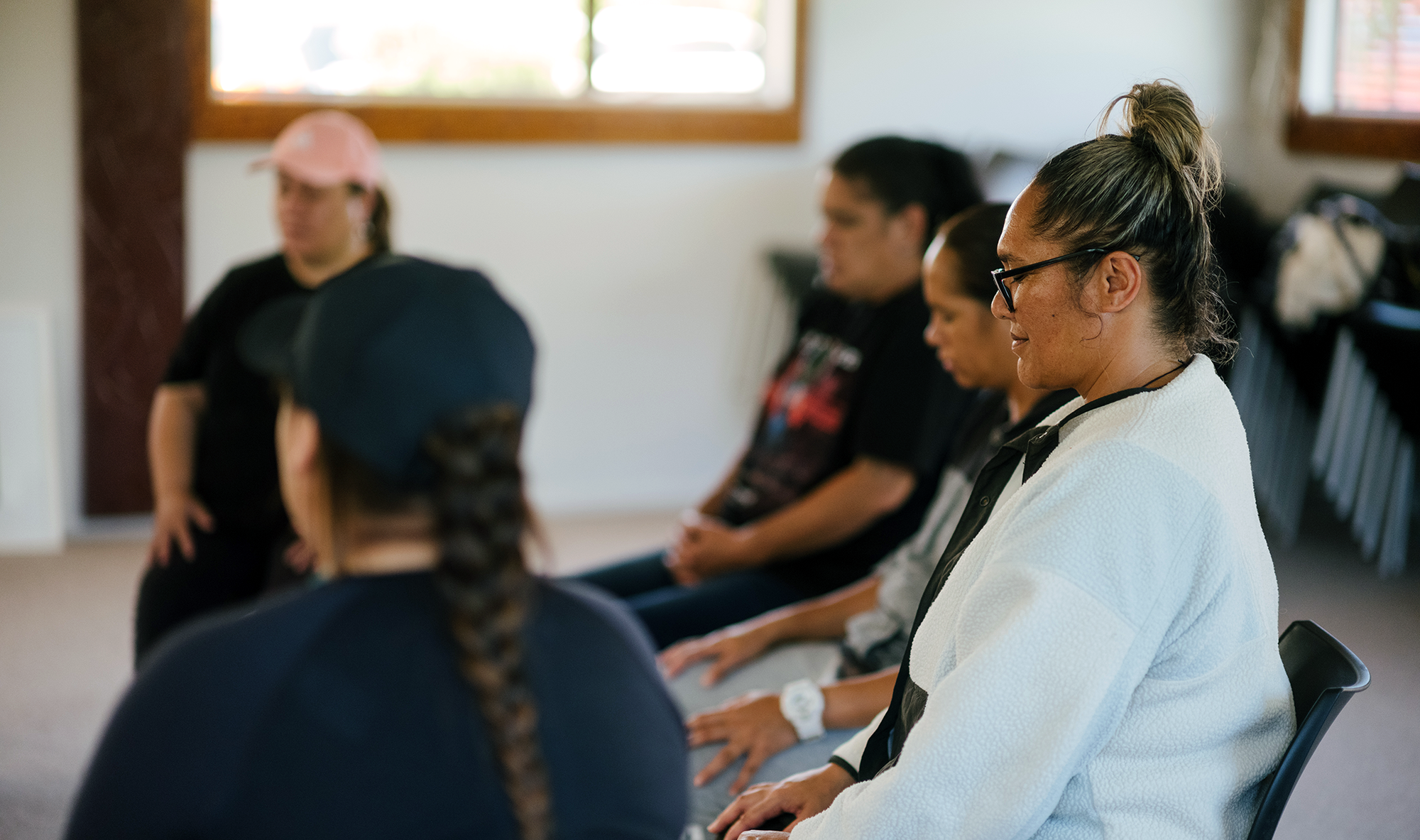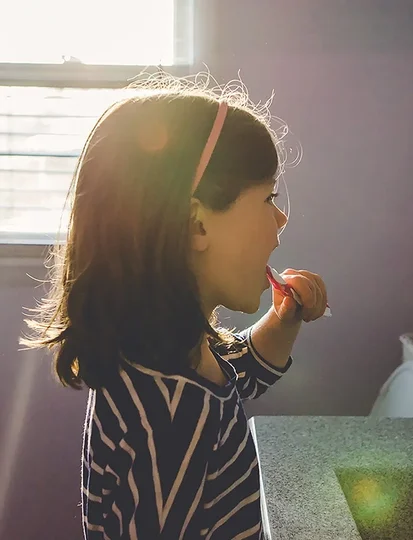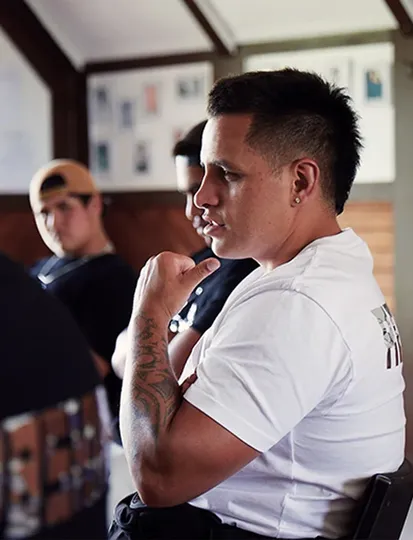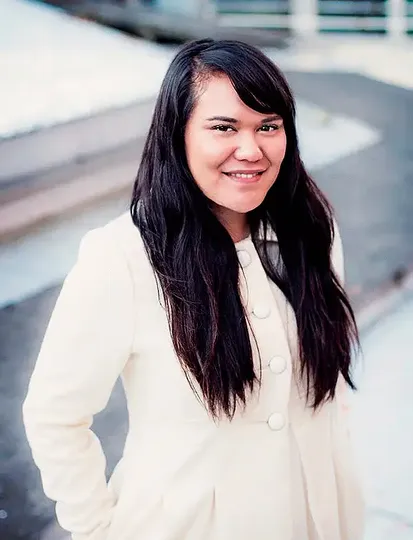A mindfulness based stress reduction programme grounded in mātauranga Māori and backed by the MAS Foundation, is improving mental health outcomes in South Auckland.
Mauri Tau me te Māramatanga is a 6 to 8 week mindfulness meditation programme that works on 2 concepts:
- mauri tau (mindfulness), a life force energy that is calm, relaxed, focused and intentional; and
- māramatanga (enlightened insight or awareness).
Together, these qualities support people to respond wisely to circumstances rather than reacting impulsively.
The programme has been supported by the MAS Foundation and is managed through Te Aho Tapu Trust. This allowed the Trust to hire an Operations Manager, Rochelle Umaga, and to professionalise the programme. This included creating a business plan and a website where people can learn about the programme and access the meditations in te reo Māori and English.
The programme was developed by Clinical Psychologist, Sharon Rickard (Ngāti Te Ata, Ngāti Tipā) and Senior Therapist, Lila O’Farrell. Papatūānuku Kōkiri Marae's kaiwhakahaere Valerie Teraitua joined Sharon and Lila in the development.
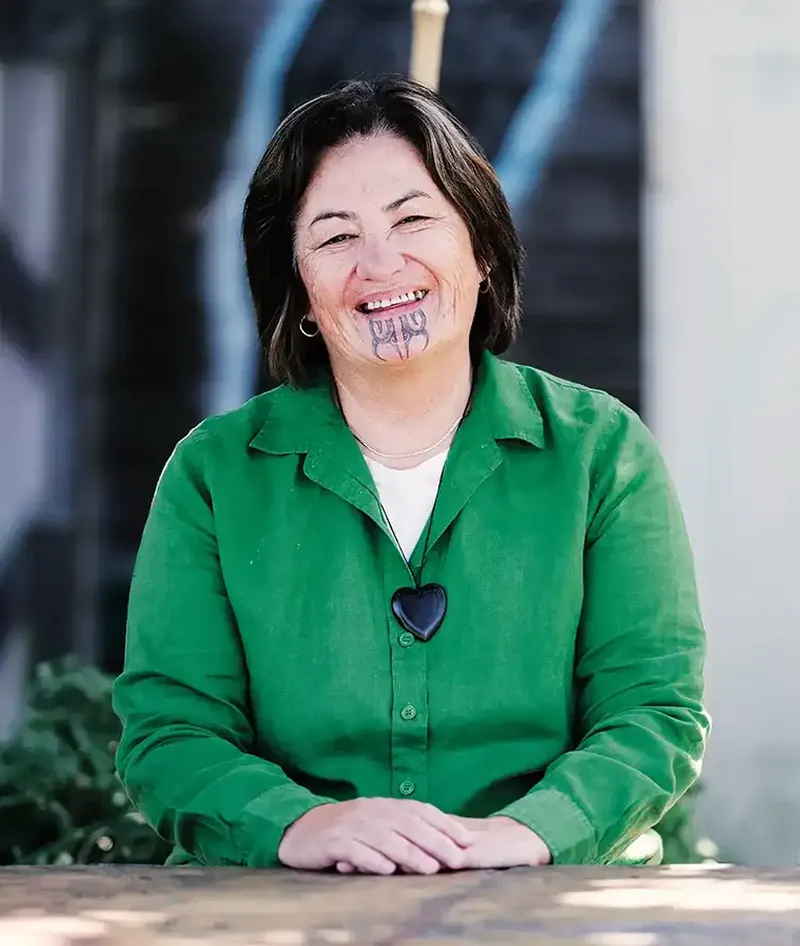
Sharon Rickard
When Sharon was facing some personal health challenges, she was recommended to try mindfulness meditation to help her through. She was dubious at first but gave it a go and found that it was useful. She started using some of the techniques she learned in her kaupapa Māori clinical practice at Te Aho Tapu Trust and found they also had positive effects on whānau she was working with.
Lila is trained in Mindfulness Based Stress Reduction (MBSR) and introduces it to people who might benefit but can't afford to pay for a private programme. With a strong social justice orientation and a background in counselling psychology and interfaith hospice chaplaincy, Lila is passionate about integrating spiritual and relational dimensions in care.
Weaving in Māori knowledge
Sharon, Lila and Valerie held a hui at the marae with Māori colleagues, kaumātua and kuia, and participants in focus groups to ensure that mātauranga Māori is authentically woven through the programme.
“It is mātauranga Māori blended with Eastern practices and Western science and psychology,” Sharon says.
She explains how the different knowledge streams are woven together. “In session one when we’re sharing how to use the breath to become present and calm the nervous system, the kaiārahi Māori [leader] offers the pūrākau of te hā and then goes on to talk about how the breath is seen as sacred within many cultures and traditions. In befriending the breath, we empower ourselves to bring peace to mind and body and to manage thoughts, feelings and behaviours often driven by stress reactivity. One participant has described this practice as whakatau wairua.”
"Western systems of health have not always been helpful to Māori people, which is why it's important to have an intervention that is accessible. There have been a lot of shortcomings in terms of how the Western models fit indigenous peoples. We know that just using medical science does not work for us.”
“As Māori, we have a history of getting things last or not getting them at all. Our people need healing, not punishment, and sometimes the health system has been a form of punishment."
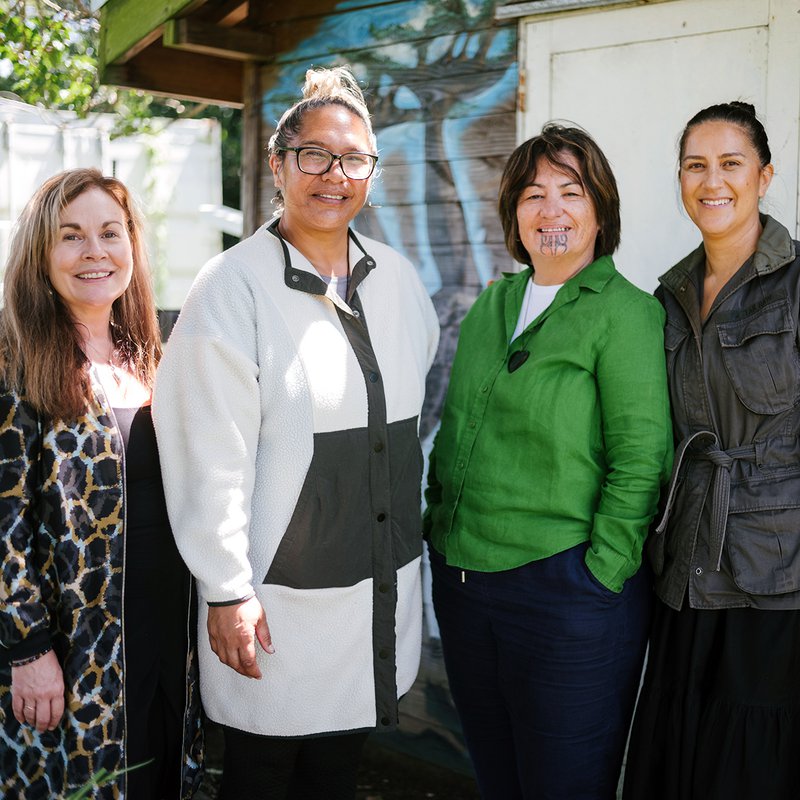
Lila O'Farrell, Valerie Teraitua, Sharon Rickard, Rochelle Umaga
Tackling issues of trauma
Trauma is at the root of the life challenges facing many Māori, Sharon says. For more than 20 years, she has been working as a Clinical Psychologist with mostly Māori whānau and says Mauri Tau me te Māramatanga is filling a gap in the current health system.
“Māori are often referred to me for issues such as anger management, and there is this punitive view that we are dealing with these angry and aggressive people that need ‘fixing’. However, I know that beneath the anger and aggression is fear, anxiety, depression and very sad trauma histories.”
"Mauri Tau me te Māramatanga is about aroha, kindness, compassion, tika and pono. These are Māori values that underpin it.”
Sharon says they’re not trying to romanticise the indigenous voice, but rather let the wisdom of te ao Māori inform and stand equally alongside Eastern practices and Western medical science.
Positive impact
Lila says statistical research on the programme has shown people moving from diagnosable to undiagnosable levels of anxiety, depression and tendency to experience psychological distress.
“Many participants have shared, ‘I love this programme, this works for me, I can really feel this making a difference for me.’ Sometimes whānau talk about a strengthening of their wairua through the mindfulness programme.”
“The MAS Foundation grant has really helped us to move forward as we are practitioners, not administrators or business people. We couldn’t keep going without this support,” Sharon says.
Julie Wharewera-Mika (MAS Foundation Head) says, “the MAS Foundation has a purpose to improve health and wellbeing equity and honour the principles of te Tiriti o Waitangi. The approach of Te Aho Tapu Trust and the Mauri Tau me te Māramatanga programme supports Māori-led genuine partnership with tangata whenua, enabling Māori to be co-designers of wellbeing initiatives.”
The participants’ feedback on the Mauri Tau me te Māramatanga programme aligns very well with the Foundation’s approach of letting the issues within the communities be resolved by those in the communities – e fofō e le alamea le alamea.
Read more grant stories
Enquire for funding
We are committed to improving health and wellbeing for people in Aotearoa New Zealand. We see our role as backing great people doing great things.
Enquire